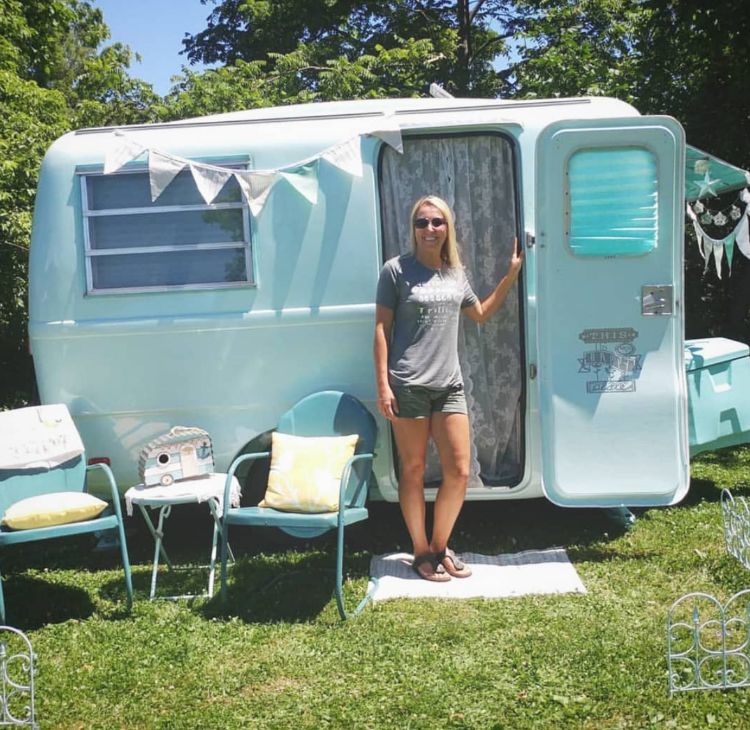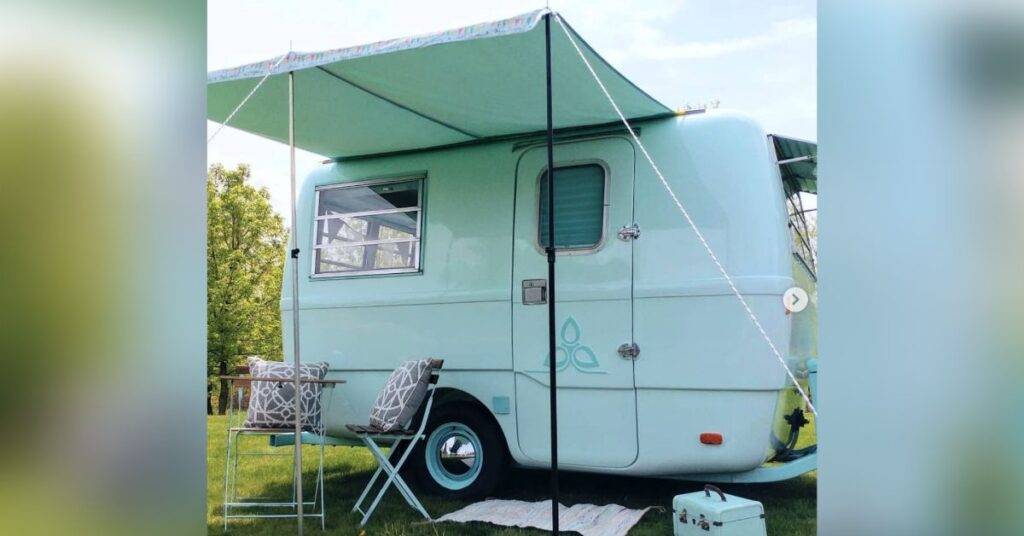Tracy Robb and her family discovered a 1975 Trillium trailer and instantly loved it.
Even though the small camper was old and needed a lot of work, Tracy was excited to fix it up.
She had never fixed up a camper before.
They bought the camper right away for $4,200 three years ago. They used it just as it was for the first year.
Then, Tracy spent six months learning and doing repairs by herself.
She built new cabinet doors, fixed and put back the windows, laid new floors, and redid the cushions.
Soon, the trailer looked new again. They named the trailer Jellybean, and it has been like a part of their family ever since.
When Jellybean first became part of the Robb family, she was strong but didn’t look very nice.
Trillium trailers are made in Alberta, Canada and have been around for many years.
They are well-made, lightweight, fiberglass trailers that last a long time. They are easy to pull with a car because they are so durable and light.
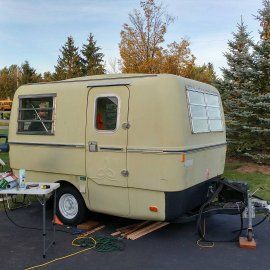
The inside of the trailer looked very old, probably just like it did when it was made.
The colors and patterns inside were exactly what you might think of for a camper from 1975.
Although Jellybean’s old style was right for her time and some people might like it, Tracy had plans to make it look newer.
She wanted to refresh the camper’s look while still honoring its history.
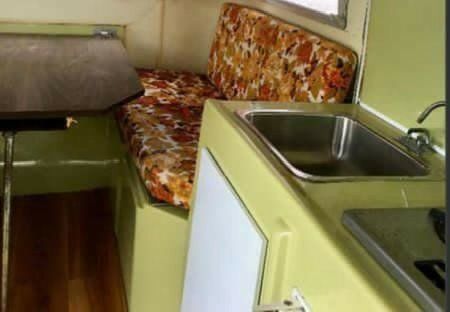
The fabric on the cushions was in great shape for its age. However, the floral pattern made the space look old.
Tracy wanted something different for her weekend getaway home.
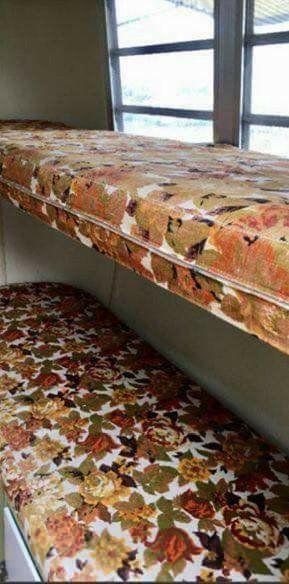
Inside, the camper was in good shape but it felt dull and boring.
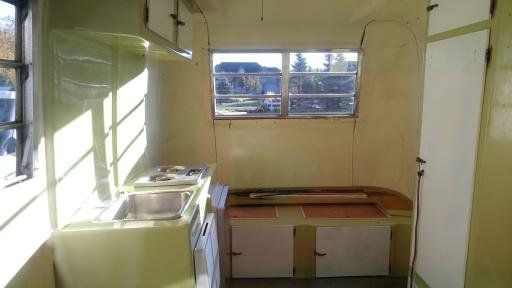
Trillium trailers are only 13 feet long but they feel roomy inside. Yet, the faded paint and dull colors inside Jellybean made it seem smaller and less cheerful.
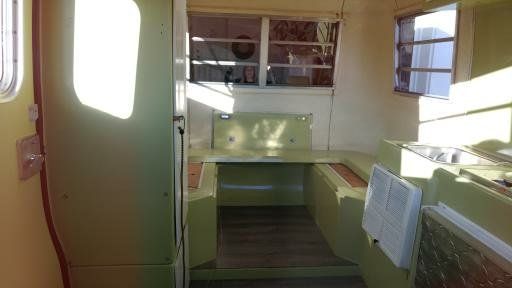
The most expensive part of fixing up Jellybean was the new paint job on the outside, which Tracy hired professionals to do.
It cost $3,200, but it was worth it because it made the trailer look brand new.
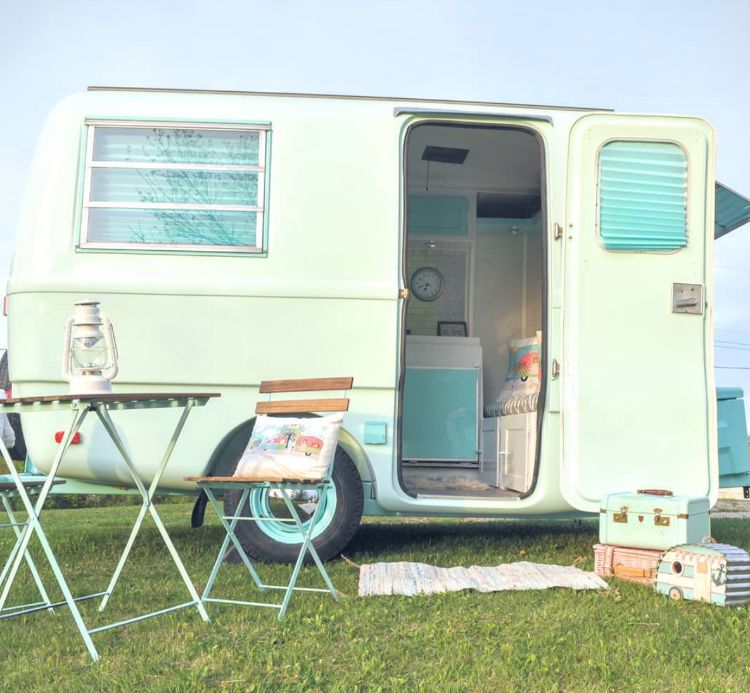
Tracy did all the inside work and decorating by herself, and it turned out great.
The dining area is very welcoming with bright blues and grays and pillows that fit the camping theme.
The large window lets the Robbs enjoy beautiful views when they park Jellybean in the woods or by the beach.
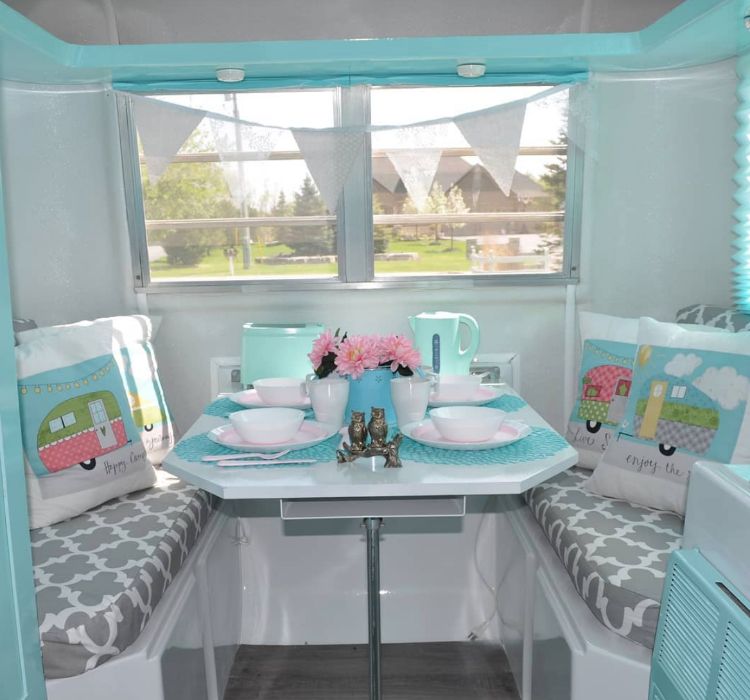
When the area turns into a bed, it looks even cozier. It’s a perfect spot to relax on a rainy afternoon.
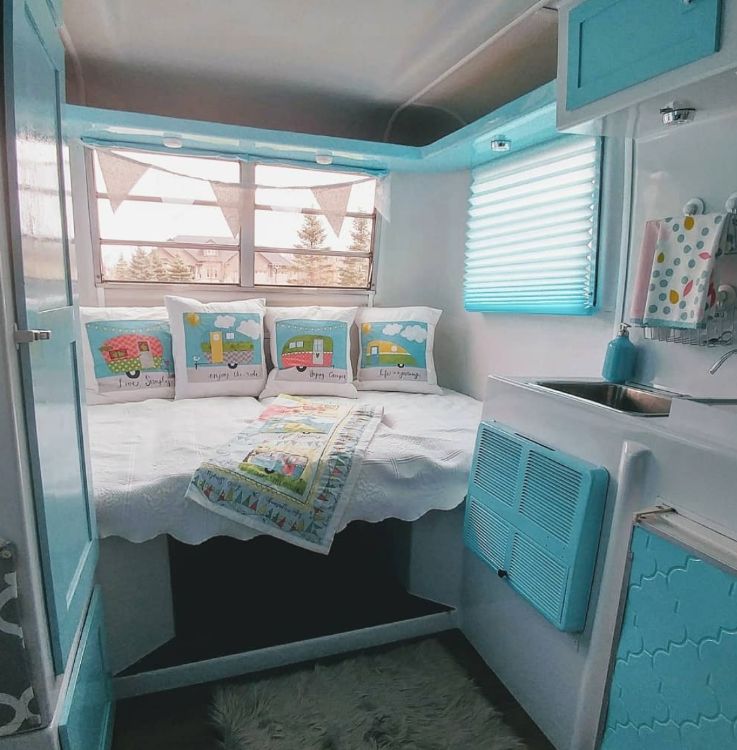
The couch changes into bunk beds, which are just right for Tracy’s two daughters.
They use it as seats during the day and beds at night. Tracy spent $355 on new cushions and $240 on fabric.
She covered the cushions herself, trying upholstery for the first time.
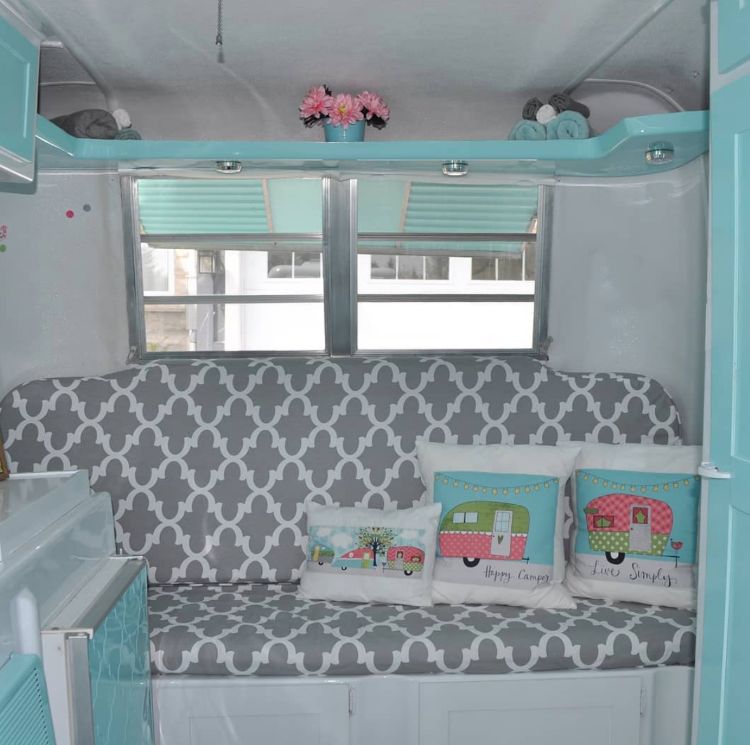
The kitchen area is Jellybean’s highlight. Tracy updated the cabinets for $160 and spent about $800 on painting and adding trim inside.
It was definitely worth it—the kitchen looks amazing and makes Jellybean seem brand new, even though it’s over 40 years old.
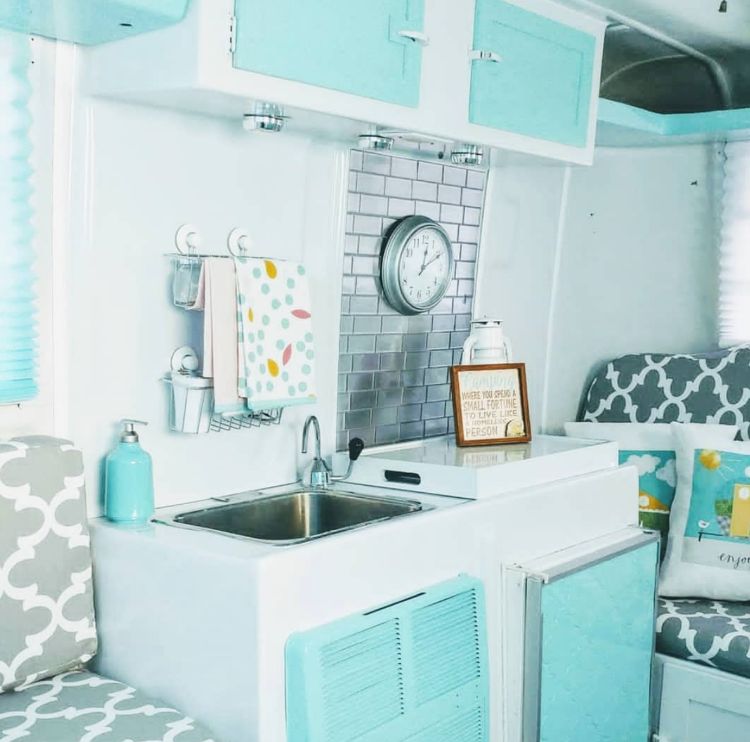
Tracy describes her decorating style as “fresh vintage.” She wanted to keep the original 1970s vibe but add her own touch, making it calm and relaxing.
She did a great job. The choice of colors makes the space feel airy, fresh, and open.
The bright blue draws your eye around the room nicely.
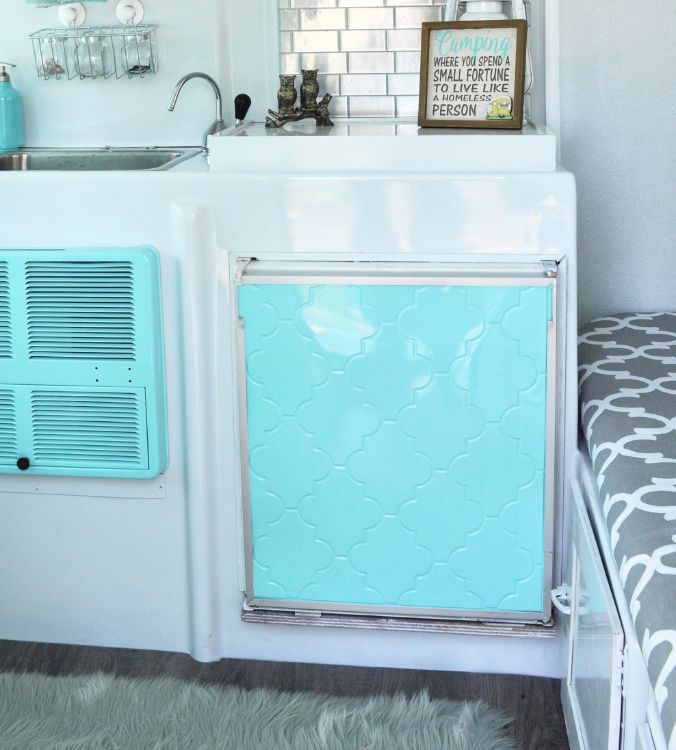
Tracy picked out several small decorations to make the space feel more like home.
Her careful choices let the Robbs show their family’s personality while they travel together.
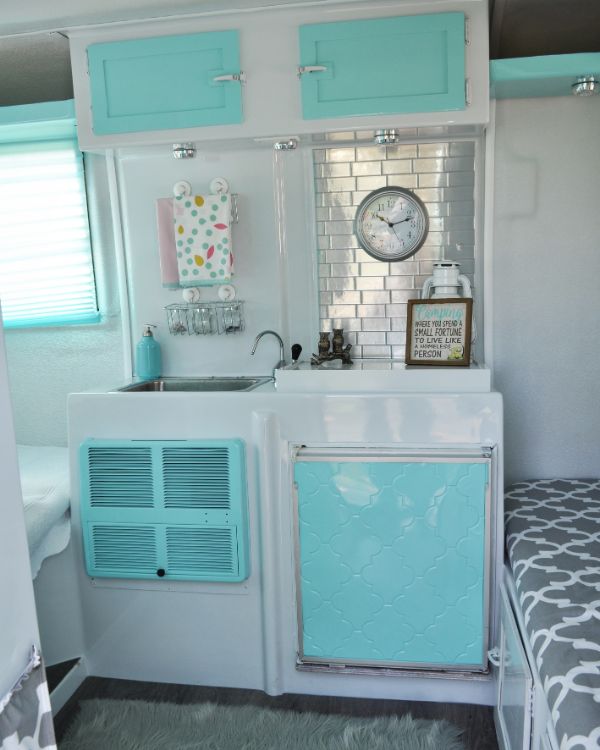
She also put up an overhead shelf for extra storage. It’s easy to reach and holds small, light items up and out of the way but still handy.
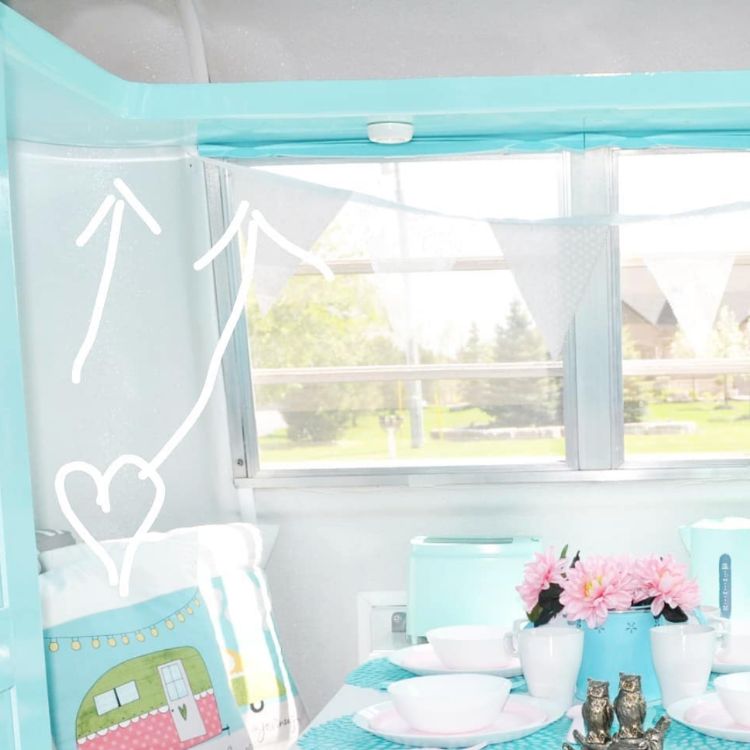
To add even more storage, Tracy installed a storage box. It was originally black, but after she painted it with the accent color, it blended perfectly with Jellybean’s style.
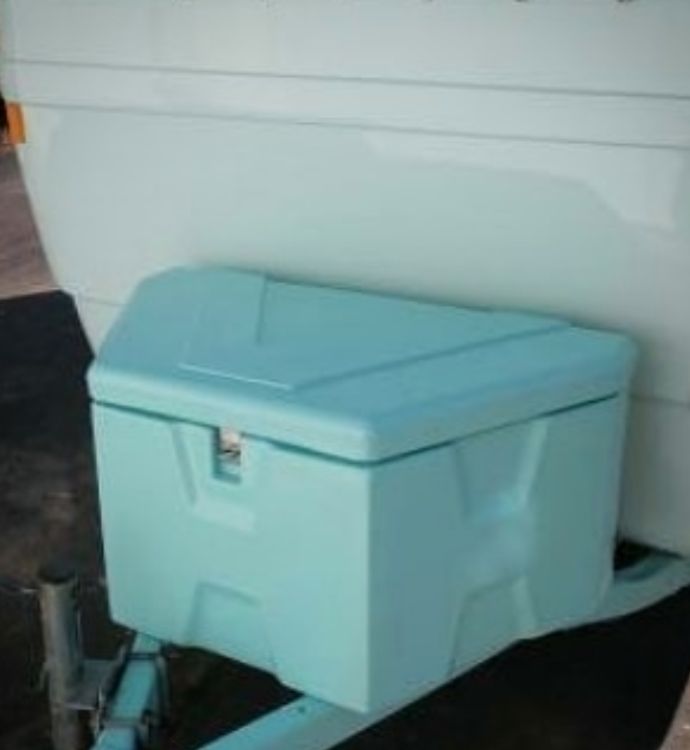
This macrame door hanging is not only pretty, but it also keeps bugs out when the family is camping.
It lets them go in and out easily.
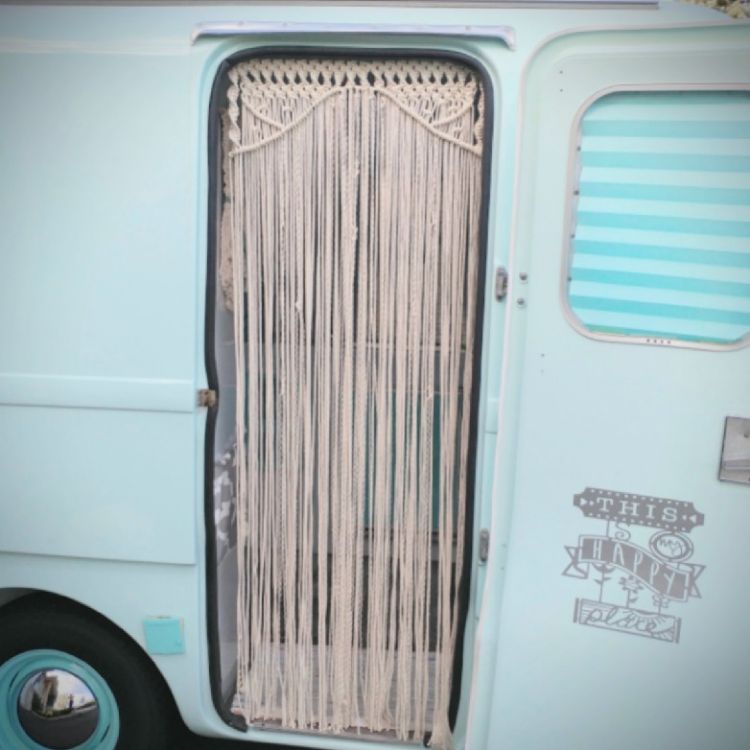
Tracy is very proud of how she fixed up the camper and she encourages others to try it too.
She says, “If you are good with tools, I say, GO FOR IT! You will have fun fixing up and camping in your very own beautiful, tiny, fiberglass trailer.”
